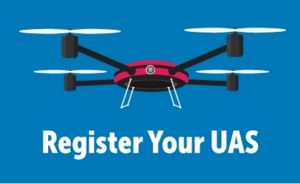 Friday’s Federal Appeals Court decision to vacate the FAA’s drone registration program as it applies to model aircraft has raised serious questions in the industry about what happens next.
Friday’s Federal Appeals Court decision to vacate the FAA’s drone registration program as it applies to model aircraft has raised serious questions in the industry about what happens next.
John Taylor’s win in his case against Michael Huerta and the FAA over drone registration for model aircraft is seen by many as a “David vs. Goliath” victory. Taylor represented many responsible recreational drone operators who saw the FAA’s requirement for a $5 registration – and the publication of personal contact information – as unfair, unlawful, and unnecessary. His one man case against a government agency was supported by many drone law experts and highlighted the unintended consequences of hasty regulation.
The Academy of Model Aeronautics (AMA) was critical of the registration program from inception, as it duplicated their own efforts and registration systems. Rich Hanson, president of the AMA, said in a statement that the court order vacating FAA registration for model aircraft was encouraging.
“AMA is encouraged to see the Court affirm the strength of the Special Rule for Model Aircraft, otherwise known as Section 336, under which our members operate. For decades, AMA members have registered their aircraft with AMA and have followed our community-based safety programming. It is our belief that a community-based program works better than a federally mandated program to manage the recreational community,” said Hanson.
“We have long held that federal registration of unmanned aircraft systems (UAS) makes sense at an appropriate threshold of weight, capability and other safety-related characteristics. However, federal registration shouldn’t apply at such a low threshold that it includes toys. It also shouldn’t burden those who have operated harmoniously within our communities for decades, and who already comply with AMA’s registration system.”
Hanson was a member of the Drone Registration Task Force that provided recommendations on the formation of the program.
Some industry stakeholders, however, have issued statements in support of the program, which they say is a major tool for informing new recreational operators. The Drone Manufacturer’s Alliance, a coalition of major manufacturers including 3DR, DJI, GoPro and Parrot, issued a statement in support of registration, which they say has contributed to safety. (All companies in the Drone Manufacturer’s Alliance were also represented on the Drone Registration Task Force.)
“DMA is studying the implications of today’s registration-related court ruling, but believes the existing system has worked well to protect the interests of safe and responsible pilots as well as the interests of society at large. As we wait for word on whether the FAA will appeal this ruling, we hope all sides see the benefit of a reasonable and minimally restrictive form of basic regulation that has helped make drone operations in America overwhelmingly safe. We look forward to working with policymakers on a long-term legislative solution.”
Other members of the initial Task Force are also speaking up to defend the program. The Small UAV Coalition, an industry group advocating for commercial drone use, issued a statement expressing concern that vacating the program leaves a gap in the FAA’s ability to communicate with hobbyists.
“….Today’s ruling generates uncertainty by eliminating a tool developed to maintain accountability and enable streamlined communication between the FAA and recreational UAS operators.
The FAA must have appropriate authority to maintain reasonable oversight of UAS operations, including management of a national UAS registry, which is the first step to identifying UAS operating in the national airspace. A lack of reasonable authority will inhibit safe integration and ultimately obstruct commercial UAS operations, putting the United States at risk of falling behind global competitors who are increasingly embracing the benefits of UAS. The Small UAV Coalition looks forward to working with lawmakers and regulators to ensure that the FAA has the authority necessary to facilitate the safe, widespread, and expeditious integration of UAS into the national airspace (NAS).”
The FAA has issued only a short response to the ruling, saying that they are “considering their options.” One option would be to appeal the ruling; another is to get Congress involved and ask that the statute prohibiting rulemaking concerning model aircraft be revised. Alternatives to registration, such as working more with manufacturers on flight education, may be explored.
If the system is dismantled, the repercussions of dealing with the published data of over 750,000 registered operators could be significant. The question most asked on DRONELIFE and other forums since the announcement on Friday is simple and practical:
“How will I get my $5 back?”

Miriam McNabb is the Editor-in-Chief of DRONELIFE and CEO of JobForDrones, a professional drone services marketplace, and a fascinated observer of the emerging drone industry and the regulatory environment for drones. Miriam has penned over 3,000 articles focused on the commercial drone space and is an international speaker and recognized figure in the industry. Miriam has a degree from the University of Chicago and over 20 years of experience in high tech sales and marketing for new technologies.
For drone industry consulting or writing, Email Miriam.
TWITTER:@spaldingbarker
Subscribe to DroneLife here.







[…] post Opinions Vary on Drone Registration: What Comes Next? appeared first on […]